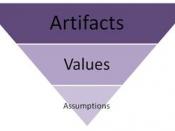"Organizational Behavior" sounds self-explanatory but as a field of study, this term includes more than it appears. Organizational behavior may be defined as behavior within an organization or as a field of study. In this paper, I will define "Organization behavior" (often abbreviated as OB) as a field of study.
The people factor is important in the success or failure of an organization. Organizational Behavior deals with this discipline of organization. There is increasing agreement regarding the components or topics that constitute the subject area of "Organizational Behavior." Although there is still considerable debate as to the relative importance of each, there appears to be general agreement that OB includes the core topics of motivation, leader behavior and power, interpersonal communication, group structure and processes, learning, attitude development and perception, change processes, conflict, work design, and work stress (Garcia and Keleman). "Organizational Behavior" may be defined as a field of study of behavior within an organization, which affects the performance of the organization.
Three important elements of behavior in organizations are individuals, groups, and structure. It is important to notice that OB includes behavior specifically within an organization. Not all the behaviors are part of OB; rather focus is on that behavior which has impact on performance of the organization. The definition may be summarized as OB is concerned with the study of what people do in an organization and how that behavior affects the performance of the organization. As OB is concerned specifically with employment-related situations, it is not
surprising to find that it emphasizes behavior as related to jobs, work, absenteeism, employment turnover, productivity, human performance, and management (Organizational Behavior 16-17). Human behavior seems random. But OB is not merely statistics of random behavior. A systematic approach of studying behavior reveals that behavior...


